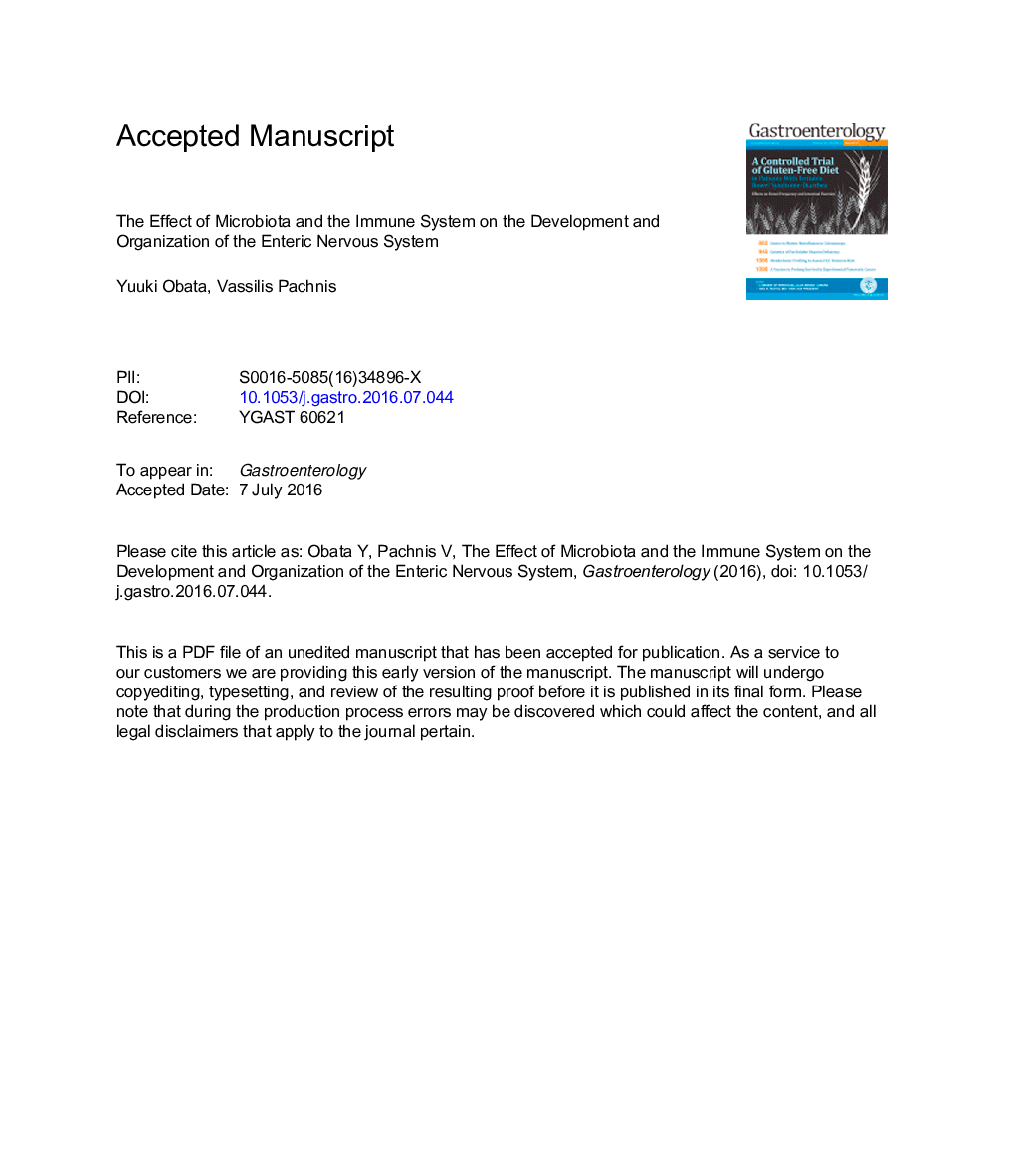| کد مقاله | کد نشریه | سال انتشار | مقاله انگلیسی | نسخه تمام متن |
|---|---|---|---|---|
| 5658187 | 1407429 | 2016 | 25 صفحه PDF | دانلود رایگان |
عنوان انگلیسی مقاله ISI
The Effect of Microbiota and the Immune System on the Development and Organization of the Enteric Nervous System
ترجمه فارسی عنوان
تأثیر میکروبیوتا و سیستم ایمنی بر توسعه و سازمان سیستم عصبی
دانلود مقاله + سفارش ترجمه
دانلود مقاله ISI انگلیسی
رایگان برای ایرانیان
کلمات کلیدی
5-hydroxytryptamineENSMGBGLP-1TLRnNOSMCTIBSSCFAEGCEnteric glial cellBSHRSD5-HTshort-chain fatty acid - اسید چرب کوتاه مدتgerm-free - بدون میکروبParkinson’s disease - بیماری پارکینسونNeuroimmune interaction - تعامل نورونیToll-like receptor - تیالآرCNS - دستگاه عصبی مرکزیGastrointestinal - دستگاه گوارشSERT - سختenterochromaffin cell - سلول انتروکروموفینneuronal nitric oxide synthase - سنتاز اکسید نیتریک عصبیirritable bowel syndrome - سندروم روده تحریک پذیر، کولیت عصبیenteric nervous system - سیستم عصبی روده ایcentral nervous system - سیستم عصبی مرکزیBMP - مدیریت فرایند کسب و کارmonocarboxylate transporter - مونوکربوکسیلاک حمل کنندهMicrobiota - میکروبیوتاBile salt hydrolase - هیدرولاز نمک صفراBone morphogenetic protein - پروتئین مورفوژنیک استخوانglucagon-like peptide-1 - پپتید 1-گلوکاگون-مانند
موضوعات مرتبط
علوم پزشکی و سلامت
پزشکی و دندانپزشکی
بیماریهای گوارشی
چکیده انگلیسی
The gastrointestinal (GI) tract is essential for the absorption of nutrients, induction of mucosal and systemic immune responses, and maintenance of a healthy gut microbiota. Key aspects of gastrointestinal physiology are controlled by the enteric nervous system (ENS), which is composed of neurons and glial cells. The ENS is exposed to and interacts with the outer (microbiota, metabolites, and nutrients) and inner (immune cells and stromal cells) microenvironment of the gut. Although the cellular blueprint of the ENS is mostly in place by birth, the functional maturation of intestinal neural networks is completed within the microenvironment of the postnatal gut, under the influence of gut microbiota and the mucosal immune system. Recent studies have shown the importance of molecular interactions among microbiota, enteric neurons, and immune cells for GI homeostasis. In addition to its role in GI physiology, the ENS has been associated with the pathogenesis of neurodegenerative disorders, such as Parkinson's disease, raising the possibility that microbiota-ENS interactions could offer a viable strategy for influencing the course of brain diseases. Here, we discuss recent advances on the role of microbiota and the immune system on the development and homeostasis of the ENS, a key relay station along the gut-brain axis.
ناشر
Database: Elsevier - ScienceDirect (ساینس دایرکت)
Journal: Gastroenterology - Volume 151, Issue 5, November 2016, Pages 836-844
Journal: Gastroenterology - Volume 151, Issue 5, November 2016, Pages 836-844
نویسندگان
Yuuki Obata, Vassilis Pachnis,
